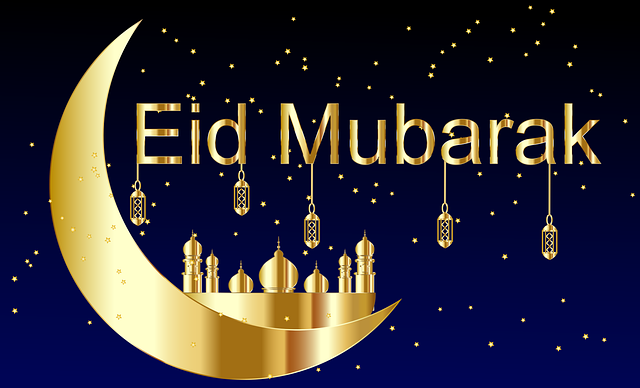Eid al-Fitr stands as the foremost Islamic Festival celebrated by billions of Muslims globally. Referred to as the “Festival of Breaking the Fast,” this joyous occasion marks the end of Ramadan, the sacred month of fasting, and heralds the arrival of the Islamic month of Shawwal. Recognized as a pinnacle in the Islamic calendar, Eid al-Fitr serves as a time for Muslims to express gratitude to Allah for His blessings, earning the moniker of “The day of thanksgiving & joy.”
During this festive period, individuals come together to pray, feast, and engage in communal celebrations, exchanging sweets and Eidi (Eid gifts) as tokens of affection. Beyond these cherished traditions lie fascinating insights about Eid al-Fitr that promise to captivate your interest.
Table of Contents
- Sweet Eid
- A Three Day Muslim Festival
- A Day of Thanksgiving to Allah
- Eid Mubarak
- Zakat al-Fitr
- Exchanging Gifts
- First Eid al-Fitr Dinner at White House
- Known for Different Names in Different Countries
- Public Holiday
- Frequently Asked Questions on EID UL Fitr 2024
- What is the significance of Eid Ul Fitr?
- How is Eid Ul Fitr celebrated?
- What are some traditional foods eaten during Eid Ul Fitr?
- Is Eid Ul Fitr a public holiday?
- How do Muslims prepare for Eid Ul Fitr?
- Are there any specific prayers or rituals associated with Eid Ul Fitr?
- Can non-Muslims participate in Eid Ul Fitr celebrations?
- Are there any traditional gifts given during Eid Ul Fitr?
- How long does Eid Ul Fitr typically last?
Sweet Eid
Eid al-Fitr, the joyful culmination of Ramadan, is commemorated worldwide with an array of delectable treats. Across the globe, traditional sweet dishes like sevaiyaan in India, Baklava in Turkey, Ketupat in Indonesia, and a myriad of other delicacies are prepared to herald the sweet conclusion of this festival. Renowned as Sweet Eid, this celebration earns its name from the abundance of delectable sweets enjoyed during this festive period.
A Three Day Muslim Festival
The festivities of this occasion span a three-day celebration, during which Muslims engage in prayer, communal feasting, gatherings, gift exchanges, and acts of charity towards the less fortunate. In certain regions, the festival may even extend to four days of jubilation and observance.
A Day of Thanksgiving to Allah
The day is revered as a time of gratitude towards Allah for His boundless blessings. Individuals humbly express their thanks to Allah for granting them the opportunity to partake in the blessings of the sacred month of Ramadan.
Eid Mubarak

On the auspicious occasion of Eid al-Fitr, individuals gather at their local Masjid for prayers and exchange greetings of “Eid Mubarak,” a customary phrase during this festival. Have you ever wondered about the profound meaning of these beautiful Arabic words? “Eid Mubarak” translates to “Blessed Eid” or “Happy Eid.” While different countries boast diverse languages and customs, the sentiment behind these heartfelt words remains universal. For instance, in Indonesia, a popular saying is “Mohon maaf lahir batin,” signifying “Please forgive me for any wrongs I have committed.”
This special day witnesses people extending warm wishes with “Eid Mubarak,” embodying the essence of a “Blessed Eid” or a “Happy Eid.” Across various languages and cultures, the sentiment and affection conveyed through these words remain consistent and profound.
Read more Do you know what ‘Eid Mubarak’ means?
Zakat al-Fitr
During the holy month of Ramadan, Muslims engage in various acts of worship, reflection, and self-discipline. Central to this period is the practice of Zakat al-Fitr, a form of charity that holds immense significance. Muslims view this act of giving as a means to cleanse their souls from sins and seek spiritual purification. By extending a helping hand to the less fortunate, individuals not only fulfill a religious obligation but also experience the profound joy that comes from aiding those in need.
The act of giving Zakat al-Fitr is deeply intertwined with the core values of compassion, empathy, and generosity that are intrinsic to Islam. Muslims believe that through this charitable deed, they can achieve a sense of inner peace and contentment that transcends material wealth. This act of charity is not just a symbolic gesture; it is a tangible expression of love and care for fellow human beings, embodying the spirit of unity and solidarity that characterizes the essence of Eid al-Fitr.
Exchanging Gifts
Gift-giving serves as a profound means of conveying affection and emotions towards others. This tradition of exchanging gifts holds a significant place in the celebrations of this festival, known as “Eidi.” During this festive period, individuals enhance the charm of the moment by presenting accessories, money, sweets, flowers, and various tokens of appreciation to one another. This act of giving and receiving gifts not only adds joy and excitement to the occasion but also strengthens bonds of love and camaraderie among friends and family members.
First Eid al-Fitr Dinner at White House
Yes, the White House hosting an Eid al-Fitr dinner is a notable tradition that commenced in 1996 under Hillary Clinton’s initiative, where distinguished members of the Muslim American Community were invited to partake in the celebratory event. Subsequently, this tradition has been continued by successive presidents, symbolizing a gesture of inclusivity and recognition of the Muslim community in the United States.
During Eid al-Fitr, Muslims are encouraged to mark the conclusion of Ramadan with festivities and communal gatherings. The day commences with a light breakfast, known as suhoor, consumed before dawn to prepare for the day ahead. Following this, the Eid prayer is performed collectively at mosques or outdoor venues. Post-prayer, Muslims exchange greetings and good wishes with one another.
The remainder of the day is dedicated to joyous celebrations, including the elaborate feast you mentioned, along with social interactions with family and friends. This festive period serves as a time for Muslims to express gratitude, rejoice in the completion of Ramadan, and strengthen the bonds of kinship and friendship within their communities.
Known for Different Names in Different Countries
This splendid festival is known by various names across different countries, such as “Ramazan Bairami” in Azerbaijan, “Lebaran” in Indonesia, “Korite” in Senegal, and “Hari Raya Puasa” in Malaysia. However, irrespective of the name by which it is called, the underlying sentiment and spirit of this celebration remain consistently heartfelt and unifying. Regardless of the diverse cultural and linguistic variations, the essence of joy, gratitude, and community that characterize this festival resonate universally among all who observe it.
Public Holiday
In Muslim-majority countries, Eid is observed as a public holiday, allowing individuals to celebrate this festival with immense fervor alongside their families, friends, and relatives. It is a time marked by exuberant gatherings and joyful festivities, where people come together to express gratitude to Allah for the blessings bestowed upon their lives. Through these communal celebrations, Muslims reaffirm their faith, strengthen familial bonds, and partake in the spirit of unity and thankfulness that defines the essence of Eid.
Other Article
Frequently Asked Questions on EID UL Fitr 2024
What is the significance of Eid Ul Fitr?
Eid ul-Fitr serves as the culmination of the sacred month of Ramadan, a period during which Muslims fast from dawn to sunset in observance of this spiritual practice. This joyous celebration is a testament to the gratitude that individuals express towards Allah for granting them the strength and guidance to uphold their fasts throughout the month. It also symbolizes a time for seeking forgiveness for any transgressions committed in the past, embodying the essence of repentance and renewal that characterizes this significant Islamic festival.
How is Eid Ul Fitr celebrated?
Eid ul-Fitr is a festive occasion that is embraced with prayers, familial get-togethers, and sumptuous feasts. During this time, Muslims adorn themselves in new or traditional attire, partake in special Eid prayers held in congregational settings, and joyously exchange gifts and greetings with loved ones. These customs not only add to the merriment of the celebration but also foster a sense of unity, warmth, and shared joy among family members and friends.
What are some traditional foods eaten during Eid Ul Fitr?
During Eid ul-Fitr, a variety of traditional foods are enjoyed to mark the joyous occasion. Sweet delicacies like Sheer Khurma, a vermicelli pudding enriched with milk and dried fruits, are relished alongside savory delights such as fragrant biryani, crispy samosas, and succulent kebabs. These delectable dishes not only enhance the festive spirit but also add a flavorful touch to the celebrations, creating a culinary experience that is cherished by all who partake in the Eid festivities.
Is Eid Ul Fitr a public holiday?
Eid ul-Fitr is indeed observed as a public holiday in numerous countries with substantial Muslim populations, encompassing Muslim-majority nations as well as countries like Canada, the United States, and the United Kingdom. This recognition of Eid as a public holiday in diverse regions underscores the cultural and religious significance of the festival, allowing communities to come together in celebration and unity.
How do Muslims prepare for Eid Ul Fitr?
In preparation for Eid ul-Fitr, Muslims engage in heightened devotion and worship during the final ten days of Ramadan, seeking spiritual renewal and closeness to Allah. Additionally, they undertake a thorough cleansing of their homes and bodies, symbolizing purity and readiness for the festive occasion. To mark the significance of the celebration, individuals purchase new clothes, reflecting a sense of renewal and joy. Furthermore, special foods are meticulously prepared, adding to the anticipation and excitement surrounding this auspicious event. These preparatory rituals not only enhance the spiritual significance of Eid but also contribute to the festive ambiance that characterizes the occasion.
Are there any specific prayers or rituals associated with Eid Ul Fitr?
During Eid ul-Fitr, Muslims gather in congregations to offer special prayers, known as “Eid prayers.” These prayers typically comprise of two units of prayer followed by a sermon delivered by the imam. As part of the prayer and celebration, Muslims recite Takbir, the declaration of the greatness of Allah, symbolizing gratitude and reverence towards the Almighty. This communal prayer and recitation serve as a unifying and spiritually enriching experience for the entire congregation, marking the culmination of Ramadan and the onset of the festive celebrations of Eid ul-Fitr.
Can non-Muslims participate in Eid Ul Fitr celebrations?
Yes, non-Muslims are welcome to participate in Eid Ul Fitr celebrations as a way to learn more about the Islamic faith and culture.
Are there any traditional gifts given during Eid Ul Fitr?
Yes, it is traditional to exchange gifts and greetings during Eid Ul Fitr. Common gifts include clothes, sweets, and money.
How long does Eid Ul Fitr typically last?
Eid Ul Fitr typically lasts for one to three days, depending on the country and region.
Eid ul-Fitr stands as a time of spiritual reflection, communal celebration, and familial bonding for Muslims around the world. This significant festival, marked by acts of charity, expressions of gratitude, and rituals of prayer and feasting, encapsulates the essence of faith, unity, and joy. As individuals come together to offer prayers, exchange greetings, and partake in festive meals, the spirit of Eid fosters a sense of belonging, compassion, and renewal within Muslim communities. Through the observance of Eid ul-Fitr, believers not only commemorate the end of Ramadan but also reaffirm their devotion to Allah, seek forgiveness, and embrace the values of love, generosity, and togetherness that define this auspicious occasion.
Please Subscribe Us to get updated with Qatar News, Saudi News, Kuwait News, Health News, UAE News, Iqama, Visa, Jobs, Banking and More.



